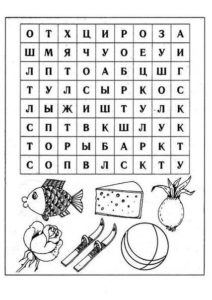geography teacher
MBOW SOSH #23
d. armavir
A game is a type of activity in situations aimed at recreating and assimilating experience, in which self-management of behavior develops and improves.
Didactic games are considered as a kind of imitation. The basic idea of imitation as a means of learning is to encourage students to put themselves in the place of others, to try to see a situation as someone would see it from the outside, to try to solve it through realistic participation in it.
The didactic game is:
A) a special attitude to the world around him (meaning that mentally for each participant, except for the real world, there is a world of his imagination, possibly coinciding with the world of his dreams, which creates his irresistible attraction for the individual and game value);
B) the subjective activity of the participants (which provides the most favorable regime for the manifestation of the individual qualities of each participant in the game, makes it possible to fix their “I” not only in game activity, but also in the entire system of interpersonal relations: personality-personality, personality-group, personality-teacher);
socially defined activity (the conditions themselves exclude a passive position, regardless of the internal warehouse and mood, the participant must play, he can not sit down, and, therefore, must play to win);
D) the special content of learning (determined by its unobtrusive form, when theoretical, methodological, and practical knowledge and skills are perceived by the participant in the game in the form of natural, rather than forced memorization of amounts of information);
D) socio-pedagogical “form of life organization” (it is assumed that certain forms of social behavior are worked out during the game, which are reproduced by participants in later real life with greater or less similarity).
The structure of the didactic game includes:
1 the roles assumed by the players;
2 game use of objects, replacement of real objects by game;
3 real relationships;
4 content of the game.
There are several types of games used in the educational process: natural and artificial games (imitation - role-playing, business and game design, and non-imitation - puzzles, crossword puzzles).
Types of role play:
- Performance in persons (staged);
- Going beyond the real history (for example, developing a situation related to what would have happened to the Krasnodar region if an aes were built);
- Acting for the other: trying to understand the actions of another person (for example, the director of the plant) through taking into play his attitudes, habitual ways of acting and thinking and placing himself in the circumstances of his actions;
- Transfer to the current situation (for example, a meeting of the commission, which should in modern conditions decide on the construction of a pulp and paper plant on the shore of the lakes). Baikal;
- An imitation game according to a certain scenario, which may be associated with the solution of the issue (for example, the use of the territory as mass tourism);
- Training in the use of a role (for example, practicing the actions of an inspector in the detention of a poacher).
Didactic games solve the following tasks:
- Rapid changes that occur in the socio-political and socio-economic situation in the country require an adequate response of the educational process to the assimilation of the basic concepts and patterns of development of features to establish interrelations between socio-economic systems;
- The formation of modern thinking is possible with the use in the cognitive activity of students of the methods of socio-economic geography as a science;
- Didactic games combine elements of economic and social monitoring, environmental and economic expertise, technological forecast of development in specific simulated situations in relation to a certain geographical space and time;
- Behavioral situations and role positions simulated in games contribute to the formation of professional and social orientation of students, as they involve the formation of skills for making individual and collective decisions based on scientific and social analysis, make the training of game participants motivated, developing, personal and socially significant.
Imitation game "Marketing" (modeling a lesson in the 10th grade).
This lesson is held after a general review of the world, before studying the regional part.
Objectives: to intensify the cognitive activity of students to generate interest in the regional study of countries.
The class is divided into groups of 5-6 people.
Class progress
The theme of the lesson “Marketing” is written on the board.
“Produce what is bought, not buy what is produced.”
-
- Introductory speech of the teacher (purposes of the lesson, acquaintance with the course of the game).
- Creating a hypothetical image of the territory. A task card is issued to the group.
- Based on the natural resources in your territory, determine the industries that it is advisable to develop in your territory.
- Specify what raw materials you will take for the production of products for each industry (your own or imported).
- What finished products will you receive? What will you export?
- Based on natural conditions, determine the branches of specialization of agriculture. What will you grow? Which industry will prevail and why? What products will you export?
- Assume and show on the map in which place of the globe your territory can be located.
- To review the territory according to the plan:
A) Name of the country (you can think of your own)
B) Geographical situation
B) Industrial and agricultural development
D) Communication on exports and imports
D) Advertising the country
- Taking stock.
During the game, such concepts as specialization, market, export and import are strengthened, creativity, enterprise is manifested, and economic thinking skills develop.
{module Yandex}




